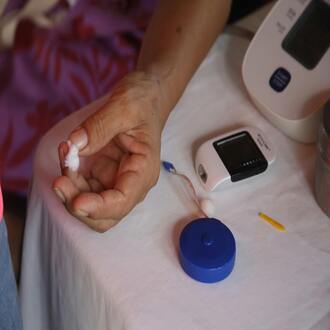Transcription What are neurocognitive disorders?
Neurocognitive disorders are conditions of the central nervous system that affect a person's ability to process and use cognitive information effectively. These conditions can have a significant impact on individuals' lives, especially in later life, when cognition can be naturally affected by aging.
In this session, we will explore in depth what neurocognitive disorders are, their types, symptoms, causes and management strategies.
Introduction to Neurocognitive Disorders
Neurocognitive disorders, formerly known as neurodegenerative disorders, are a category of medical conditions that involve impairment in cognitive functions such as memory, attention, language, and problem-solving ability. These conditions often progress over time and can significantly affect the quality of life of individuals and their caregivers.
Types of Neurocognitive Disorders
There are several types of neurocognitive disorders, the most common being:
- Alzheimer's Disease: the most common form of dementia and is characterized by the accumulation of beta-amyloid protein plaques in the brain, which damages nerve cells and causes progressive loss of memory and cognitive functions.
- Vascular dementia: Results from problems in cerebral blood flow, which can be caused by stroke or vascular disease. It causes cognitive symptoms similar to Alzheimer's disease.
- Dementia with Lewy Bodies: Characterized by the accumulation of proteins called Lewy bodies in the brain. Symptoms include fluctuations in cognition, visual hallucinations and motor problems similar to Parkinson's disease.
- Frontotemporal dementia: Affects the frontal and temporal areas of the brain, leading to changes in personality, behavior and executive function.
- Inclusion Body Dementia: Characterized by the accumulation of abnormal proteins in brain cells, causing cognitive and motor problems.
Common Symptoms of Neurocognitive Disorders
Symptoms of neurocognitive disorders can vary depending on the type and stage of the condition, but generally include:
- Memory loss, especially for recent events.
- Difficulty performing everyday tasks.
- Language changes, such as difficulty finding words.
- Problems with planning and decision making.
- Changes in personality and behavior.
- Disorientation in time and space.
- Difficulty recognizing people close to them.
- Paragraph 4: Causes of Neurocognitive DisordersThe causes of neurocognitive disorders are varied and often multifactorial.
Some key factors include:
- Genetics: There is a genetic predisposition in some neurocognitive disorders, such as Alzheimer's disease.
- Brain injury: Traumatic injury or vascular disease can increase the risk of dementia.
- Abnormal proteins: The accumulation of abnormal proteins in the brain is a common factor in several neurocognitive conditions.
- Chronic medical diseases: Hypertension, diabetes and other chronic diseases can increase the risk of neurocognitive disorders.
- Aging: Natural aging of the brain is a risk factor in many cases.
Diagnosis, evaluation and treatment
Diagnosis of neurocognitive disorders involves a comprehensive medi
neurocognitive disorders




